From Pune To Panipat, Creating New Clothes From The Old
In Pune, MotherQuilts is empowering rural women and keeping the traditional art of Godhadi making or quilting alive. Godhadis are traditional hand-stitched patchwork quilts usually made using old sarees. On the other hand, Panipat, known as the "cast-off capital" of the world, recycles textile.
-
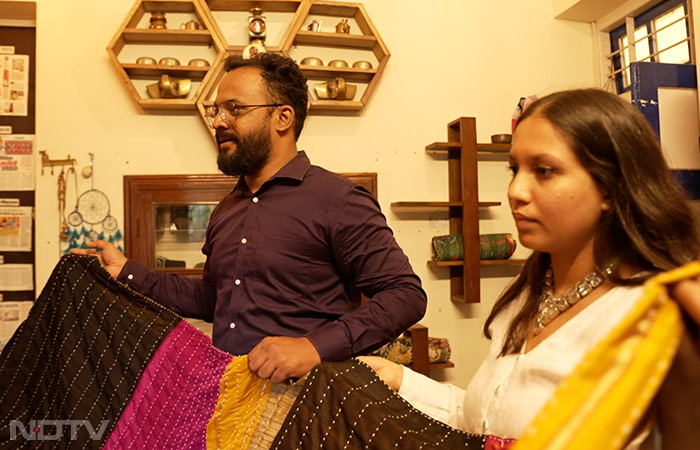 Pune is the second-largest city in Maharashtra. A few kilometers away from the historic centre of the city, on Fergusson College Road, is a store called MotherQuilts which is keeping history and tradition alive in its own way - by making Godhadis or quilts. Neeraj V Borate wanted to empower rural women and keep a traditional art form alive and hence he founded MotherQuilts.
Pune is the second-largest city in Maharashtra. A few kilometers away from the historic centre of the city, on Fergusson College Road, is a store called MotherQuilts which is keeping history and tradition alive in its own way - by making Godhadis or quilts. Neeraj V Borate wanted to empower rural women and keep a traditional art form alive and hence he founded MotherQuilts. -
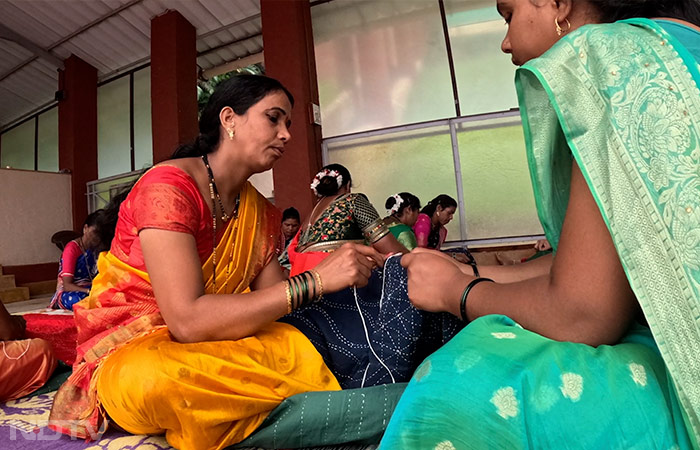 Sharing the idea behind MotherQuilts, the founder Neeraj V Borate called to focus on the problems in rural areas. He recalled, "When I was 11, my grandmother used to keep quilting. Once I asked her why she does it and she told me the story of quilts. She said, 'These patches are like family members and stitches between them are like bonding between them'. This story was stuck in my mind for a long time. I started working with two artisans who are highly skilled in traditional quilting."
Sharing the idea behind MotherQuilts, the founder Neeraj V Borate called to focus on the problems in rural areas. He recalled, "When I was 11, my grandmother used to keep quilting. Once I asked her why she does it and she told me the story of quilts. She said, 'These patches are like family members and stitches between them are like bonding between them'. This story was stuck in my mind for a long time. I started working with two artisans who are highly skilled in traditional quilting." -
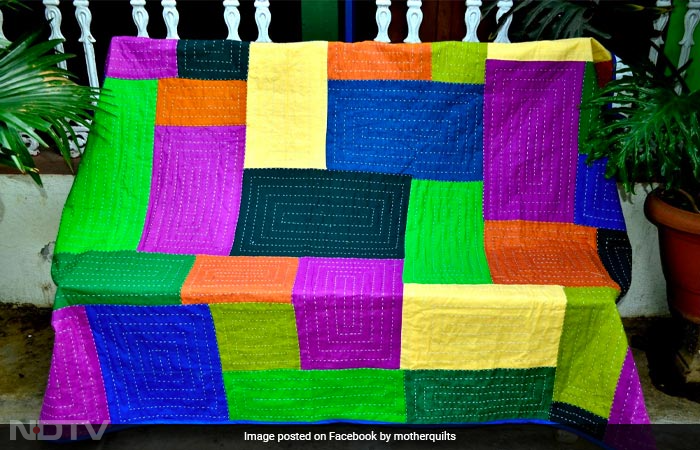 Godhadis are traditional hand-stitched patchwork quilts. The tradition of Godhadi making, most often from old sarees, is practiced in Maharashtra, Gujarat, Rajasthan, and parts of Madhya Pradesh. In earlier years, women would sit together in the afternoon with their old sarees and unused clothes and stitch the pieces of fabric together to make quilts for their children.
Godhadis are traditional hand-stitched patchwork quilts. The tradition of Godhadi making, most often from old sarees, is practiced in Maharashtra, Gujarat, Rajasthan, and parts of Madhya Pradesh. In earlier years, women would sit together in the afternoon with their old sarees and unused clothes and stitch the pieces of fabric together to make quilts for their children. -
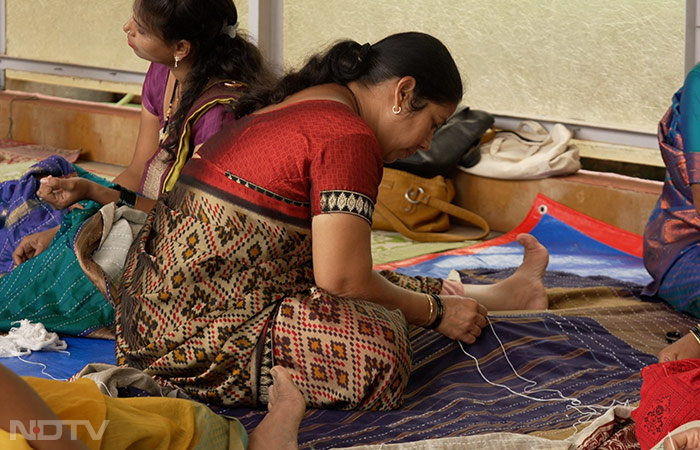 With the intention of bridging the gap between rural skilled Godhadi makers and people in cities looking for authentic quality products, Neeraj spent time understanding the process and the problems. There were inadequate market ecosystems, no market linkages, a lack of economic incentives, increased migration, and a lack of support. Neeraj brought the artisans together and provided them with work, resulting in an increase in their daily earnings.
With the intention of bridging the gap between rural skilled Godhadi makers and people in cities looking for authentic quality products, Neeraj spent time understanding the process and the problems. There were inadequate market ecosystems, no market linkages, a lack of economic incentives, increased migration, and a lack of support. Neeraj brought the artisans together and provided them with work, resulting in an increase in their daily earnings. -
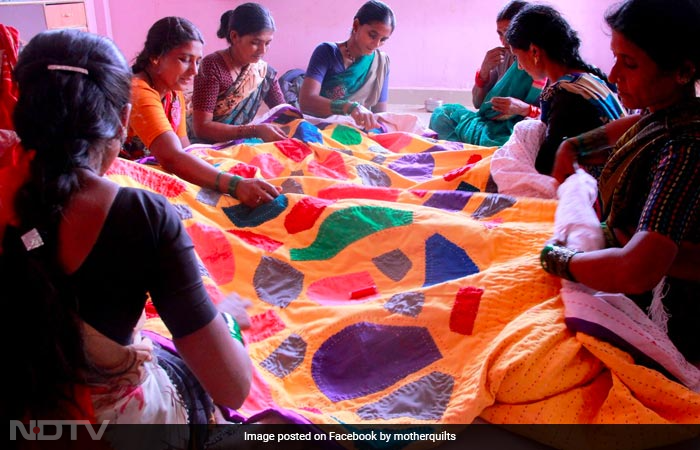 There is better income remuneration for artisans, the promotion of rural enterprises in handloom and handicraft, and the generation of local employment at various points in the production and logistics chain, not to mention empowering rural women with livelihoods.
There is better income remuneration for artisans, the promotion of rural enterprises in handloom and handicraft, and the generation of local employment at various points in the production and logistics chain, not to mention empowering rural women with livelihoods. -
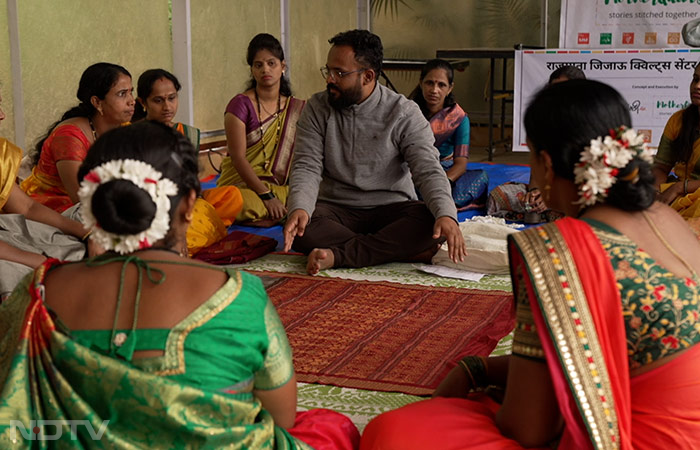 Two and a half hours from Pune is the hill station of Panchghani where Neeraj has initiated one such Godhadi making centre. The women here work on bulk orders, orders with specific requirements, each Godhadi given a different patch, look and feel. Neeraj explains to the women what the requirement is for each order, and sits with them while they do the stitching.
Two and a half hours from Pune is the hill station of Panchghani where Neeraj has initiated one such Godhadi making centre. The women here work on bulk orders, orders with specific requirements, each Godhadi given a different patch, look and feel. Neeraj explains to the women what the requirement is for each order, and sits with them while they do the stitching. -
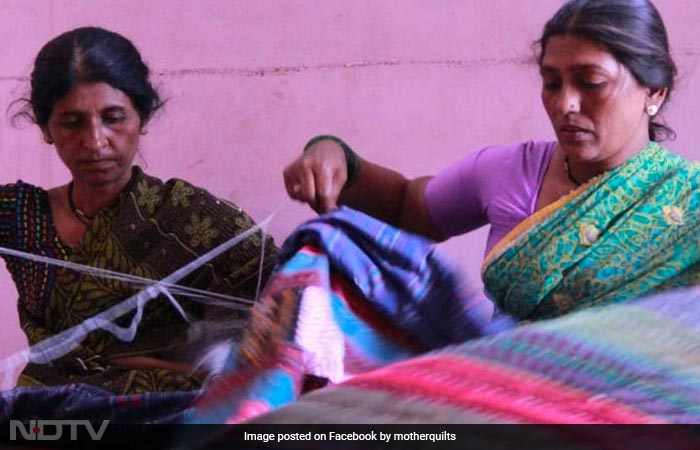 In its eight years of existence, MotherQuilts has now provided more than 350 artisans from nine states with sustainable employment opportunities. Since its founding in 2015, MotherQuilts has regularly engaged in the training of over 3,000 female artisans who have collectively hand-stitched more than 4,000 quilts. Additionally, over 3,000 quilts worth of dead stock and discarded materials were upcycled, and the ‘Make Your Quilt' campaign used over 1,700 sarees, saving them from landfills and environmental degradation.
In its eight years of existence, MotherQuilts has now provided more than 350 artisans from nine states with sustainable employment opportunities. Since its founding in 2015, MotherQuilts has regularly engaged in the training of over 3,000 female artisans who have collectively hand-stitched more than 4,000 quilts. Additionally, over 3,000 quilts worth of dead stock and discarded materials were upcycled, and the ‘Make Your Quilt' campaign used over 1,700 sarees, saving them from landfills and environmental degradation. -
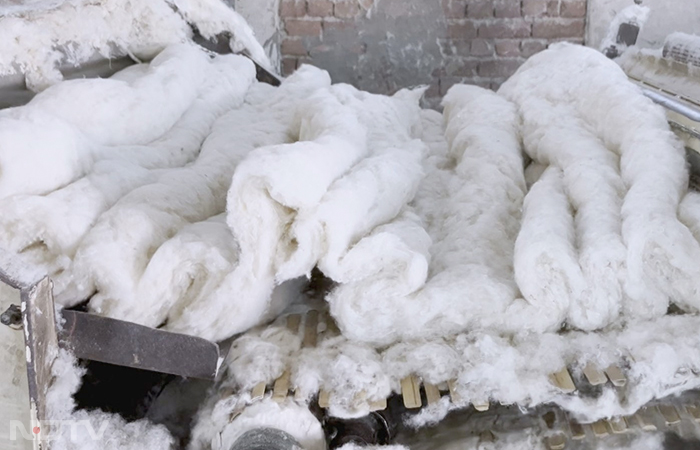 From Maharashtra, we move to Panipat, known as the "cast-off capital" of the world. Textile waste arrives in Panipat from Kandla port in Gujarat where shipping containers bring in worn, discarded clothes from across the world. The clothes are first sorted and then sent further ahead to different areas depending on their condition. Clothes that are not damaged, mutilated or torn are kept to be sold as they are, after minor refinements.
From Maharashtra, we move to Panipat, known as the "cast-off capital" of the world. Textile waste arrives in Panipat from Kandla port in Gujarat where shipping containers bring in worn, discarded clothes from across the world. The clothes are first sorted and then sent further ahead to different areas depending on their condition. Clothes that are not damaged, mutilated or torn are kept to be sold as they are, after minor refinements. -
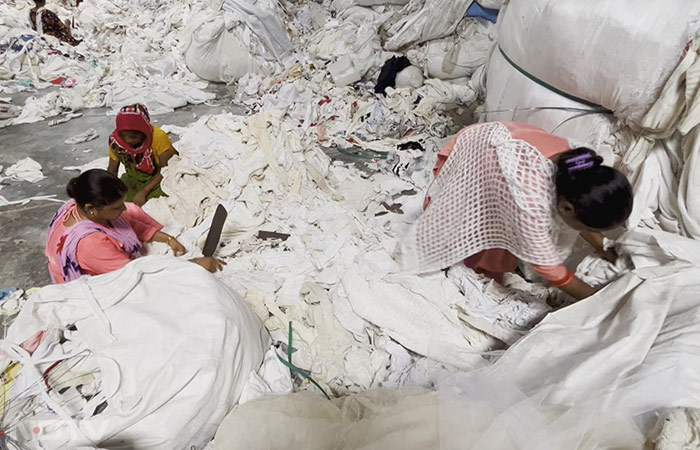 The task of sorting is usually carried out by women, who spend eight-nine hours every day segregating huge piles of clothes. All metallic objects are removed from the clothes - zips, chains, buttons, and even the odd leftover coin in a pocket.
The task of sorting is usually carried out by women, who spend eight-nine hours every day segregating huge piles of clothes. All metallic objects are removed from the clothes - zips, chains, buttons, and even the odd leftover coin in a pocket. -
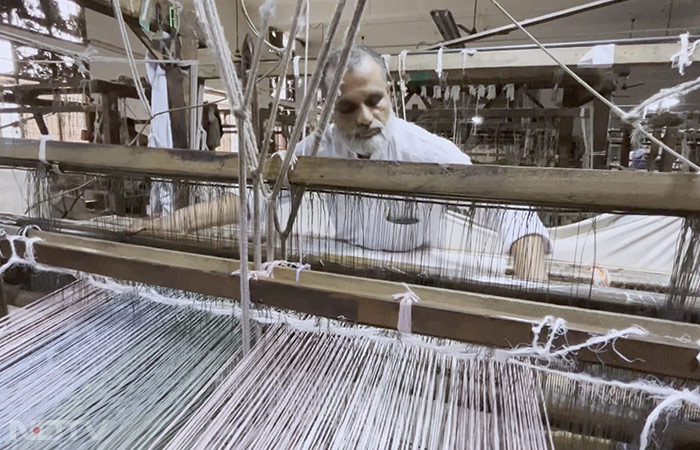 Clothes and rags - cotton, hosiery and woollen - are imported at cheap rates. They are ripped apart and recycled to make yarn, and the yarn is further used to make a host of household and handloom products. Also Read: Women Of Gujarat's Vankar Community Are Weaving Plastic And Saving The Environment, Thanks To Rajiben Clothes and rags - cotton, hosiery and woollen - are imported at cheap rates. They are ripped apart and recycled to make yarn, and the yarn is further used to make a host of household and handloom products. In fact, the blankets that Panipat is best known for producing are also made of a recycled yarn called shoddy yarn. It is a woollen yarn obtained by shredding discarded woollen clothing that arrives here from all over the world.
Clothes and rags - cotton, hosiery and woollen - are imported at cheap rates. They are ripped apart and recycled to make yarn, and the yarn is further used to make a host of household and handloom products. Also Read: Women Of Gujarat's Vankar Community Are Weaving Plastic And Saving The Environment, Thanks To Rajiben Clothes and rags - cotton, hosiery and woollen - are imported at cheap rates. They are ripped apart and recycled to make yarn, and the yarn is further used to make a host of household and handloom products. In fact, the blankets that Panipat is best known for producing are also made of a recycled yarn called shoddy yarn. It is a woollen yarn obtained by shredding discarded woollen clothing that arrives here from all over the world. -
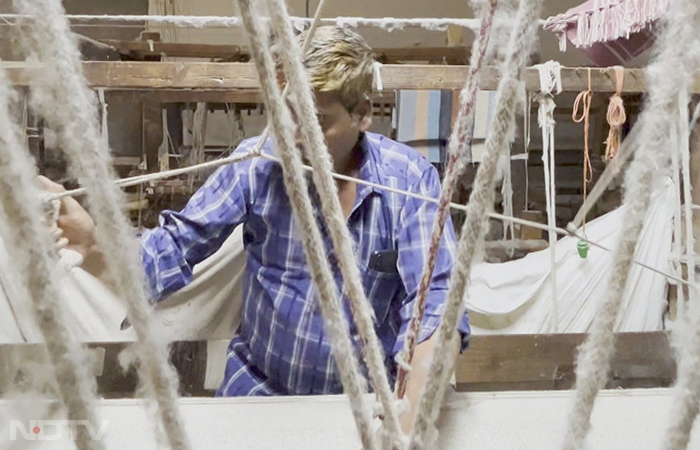 The numbers vary, but estimates suggest that Panipat recycles over one lakh tonnes of discarded clothing every year. The process of recycling used here reduces the need for chemicals, the need for landfill space, and reduced energy consumption and also wastewater. All in all, a massive benefit for the environment.
The numbers vary, but estimates suggest that Panipat recycles over one lakh tonnes of discarded clothing every year. The process of recycling used here reduces the need for chemicals, the need for landfill space, and reduced energy consumption and also wastewater. All in all, a massive benefit for the environment.
Advertisement
Advertisement
Advertisement
Advertisement
